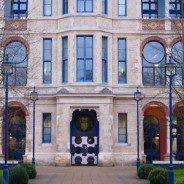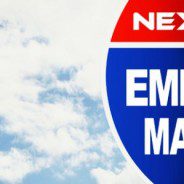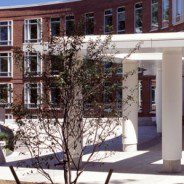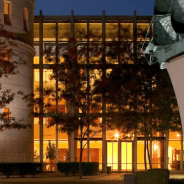Search results for Where Should I Work:
The Seven Hardest MBA Admissions Interview Questions—and How to Answer Them
This post was originally published in its entirety on clearadmit.com
We recently shared our list of the most commonly asked MBA admissions interview questions, along with extensive advice on how to approach such queries. In light of the popularity of that piece, we’ve decided to up the ante this time around and spend some time deconstructing the absolute worst, totally unfair, just all-around-tough MBA admissions interview questions. Continue reading…
Judge Business School Alum on the Value of Experience in Entrepreneurship
The business of entrepreneurship isn’t just a millennial’s game, as evidenced by an alum of Judge Business School at the University of Cambridge.
Stephen Tordoff received his postgraduate diploma from Judge in 2011, and formed Energy Canvas (whose website is currently under construction) in 2013 at the age of 38. By this time, he had gained nearly 15 years of work in the renewable energy sector. Stephen is a strong believer in the value of experience.
How Emerging Market Brands Will Go Global
Last week, Columbia published an article by Sharon Kahn on its business school’s blog, which discussed strategies that emerging markets would do well to consider when raising global awareness of homegrown mass consumer brands.
Continue reading…
Wilfrid Laurier Ranked as 2nd Best School in Canada for Entreprenership
In a new study by UniversityHub.ca and presented by HuffPost, Wilfrid Laurier University was ranked as the second-best Canadian University for entrepreneurship. The study interviewed over 1,000 students and asked them to rate their schools based on a variety of areas. Continue reading…
M.I.T. Sloan Is Trying To Slow The Inevitable Robot Takeover
In an era of overwhelming technological acceleration, has the age-old adage that college degrees secure higher-paying jobs become…fictitious? M.I.T. Sloan School of Management recently published a press release on its blog that explores the potential steps that educators and policymakers will have to take in order to keep future professionals from being rendered obsolete in the workplace. Will a degree prevent us from being swapped out for robots 5-10 years from now? Continue reading…
UT Arlington Hosts Symposium on Business Data Analysis
The University of Texas at Arlington – College of Business recently discussed data analysis and its practical applications at a symposium celebrating the Business College’s 50th anniversary.
London Business School Advises Students on Managing Cost of Living in London
London Business School financial aid officer Kathleen Bell outlines how prospective and incoming students should consider managing the cost of living in London in an informative blog post.
Alumni Spotlight: Holiday Heroes’ Michael Stark, Quinlan MBA
Michael Stark worked hard in school, really hard. After earning both his JD from the School of Law and MBA from the Quinlan School of Business in just three years, Stark is currently the first full-time executive director for Holiday Heroes, a nonprofit that works with hospitals to throw themed parties and events for its youngest patients. Continue reading…
Babson’s Entrepreneurship Center Gets New Leader
Babson College‘s Arthur M. Blank Center for Entrepreneurship has named a new director.
Debi Kleiman was previously the managing director and executive vice president at Havas Media. Her experience also includes serving as president of MITX (Massachusetts Innovation & Technology Exchange), according to a press release from the school. She has mentored entrepreneurs at MassChallenge, Harvard’s iLab and TechStars Boston.
“Babson College is an incredible place and I feel so fortunate to join the team at the Blank Center,” Kleiman said.
“Working with students, alumni and faculty, as well as the broader entrepreneurial community, to create greater success and understanding of the practice of entrepreneurship is very gratifying, impactful work and a whole lot of fun.”
Since 1998, the Blank Center has been the hub of entrepreneurship at Babson, a school known for its entrepreneurship programs. Its centers and institutes include the John E. and Alice L. Butler Venture Accelerator, Alumni Entrepreneur Hall of Fame, Babson College Entrepreneur Research Conference, the Institute for Family Entrepreneurship and the Center for Women’s Entrepreneurial Leadership.
“All of us at the Blank Center are thrilled to have Debi Kleiman join us,” said Entrepreneurship Division Chair Andrew Corbett.
“Her background in starting and growing entrepreneurial organizations along with her vision for the next generation of what the Arthur M. Blank Center for Entrepreneurship can become makes her a great fit. She knows the local entrepreneurship scene, and is well connected in the Boston-area entrepreneurial ecosystem. Her experience in the Bay Area should also pay dividends for our students at our San Francisco campus.”
Admissions Tip: Top 5 MBA Interview Questions
This post has been republished in its entirety from the original source clearadmit.com
Interviews, interviews, interviews…it’s all anyone seems to be talking about these days, and with good reason. Wharton is scheduled to release its interview decisions on Tuesday, Harvard Business School has already released its decisions, as have many other top schools. Continue reading…
Management Leadership for Tomorrow (MLT): Increasing Diversity in Leadership Since 2002.
While Blacks, Latinos, and Native Americans make up 31.8% of the U.S. population, they only make up 3% of the U.S. senior leadership in the private and social sectors according to Management Leadership for Tomorrow (MLT). It’s a stark racial disparity in America, and one that MLT is working to change. Continue reading…
MS Business Analytics
UC San Diego MS Business Analytics Program Structure
The UC San Diego MS Business Analytics (MSBA) at Rady School of Management be completed full-time or part-time. Full-time students can complete the program in as little as 11 months. Students enrolled in the FlexWeekend program can complete the degree in between 12 and 24 months depending on their schedule.
The program begins with a Pre-term orientation. The last quarter of the program includes a four-unit capstone course (during summer). This program emphasizes how to use data and analytics to identify business opportunities, generate business insights and create business solutions.
Curriculum
The UC San Diego MS Business Analytics is a 50-unit, STEM designated degree program. The curriculum consists of four 4-unit core courses, two separate one-unit core courses, and 32 units from a set of elective courses, as well as a mandatory Pre-term Orientation.
MSBA students will:
1. Use predictive analytics and optimization for data driven decision-making in marketing, finance, management and operations
2. Collect, clean, visualize, and analyze data
3. Use statistical and optimization tools (e.g., R, Shiny, Radiant)
4. Create and implement business analytics solutions
Class Profile
Total enrollment in the 2019-2020 full-time MSBA program is 67 students, with 67 percent identifying as female and 33 percent identifying as male. A notable 81 percent of students are of international origin. About 22 percent of students earned Accounting/Finance undergraduate degrees. The average amount of work experience is 45 months, and the average GPA upon entry is 3.47. The median GMAT score is 701.
Careers
The Rady School Career Management Center staff provides students with a network of support as they pursue their post-graduation career goals.
Rady Career Management Center actively works with Rady students to provide assistance during the application process for internships or full-time employment, and prepare them for career success through guidance and mentoring.
Tuition, Scholarships, and Financial Aid
Current tuition for the UC San Diego MS Business Analytics costs $1,160 per unit.
To be considered for financial assistance or non-subsidized loans, students should complete the Free Application for Federal Student Aid (FAFSA).
Rady provides limited merit-based fellowship support to exceptional individuals. All domestic and international admitted students are invited to apply for a Rady fellowship by requesting the Fellowship Application from the Graduate Admissions office after they receive their official offer of admission.
Admissions
The Rady School admissions team reviews applications as they are received and makes decisions on a rolling basis. The number of seats is limited so applying early increases your likelihood of gaining admission.
It is expected that most successful applicants will have either (i) an undergraduate degree in a quantitative discipline such as mathematics, economics, statistics, physics, engineering, or computer science, or (ii) five or more years of work experience in the public or private sector.
Students with a non-quantitative undergraduate degree and less than five years of work experience will be considered on an exceptional basis if (1) their work experience is in the area of business analytics or marketing research or (2) they have developed a strong quantitative background through additional coursework or relevant work experience. The program will only admit students who have a solid foundation in quantitative methods, particularly knowledge of probability and statistics and the use of statistical applications such as R, SAS, STATA, and Matlab.
Additionally, each student must demonstrate evidence of programming proficiency from prior college coursework, professional experience, a certificate from a continuing education program, or a Coursera course on R-programming.
UC San Diego MS Business Analytics application requirements:
-
- Online application form
- Transcripts
- Resume or CV
- Quantitative Background
- Recommendations
- State of Purpose
- GMAT or GRE Scores
- TOEFL, IELTS or PTE Score (for international applicants only)
- $105 Domestic Application Fee, $125 International Application Fee
Summer 2020 deadlines are as follows:
February 1, 2020 – 2nd Round
April 1, 2020 – 3rd Round / International Student Deadline
June 1, 2020 – 4th Round Deadline
Master of Finance
UC San Diego Master of Finance Program Structure
The UC San Diego Master of Finance degree at Rady School of Management is a full-time program. Students can opt to complete their degree in one year, or to finish in 15 months, which includes a summer internship. The program is composed of a pre-term orientation that includes a series of ‘boot camps,’ and four semesters—the last of which includes a four-unit capstone course. The program emphasizes quantitative models and method and is usually completed within 12 to 15 months.
Curriculum
The UC San Diego Master of Finance program is a 52-unit degree program. The curriculum consists of four core courses, eight four-unit elective courses and a four-unit capstone. There is also a mandatory Pre-Term Orientation approximately two weeks before Fall quarter.
The year-long program emphasizes training in empirical finance, quantitative methods, financial econometrics, data analysis, and risk management. Students will also study econometric modeling and empirical finance.
Class Profile
Recent figures showed that 146 students are enrolled UC San Diego Master of Finance class, with 42 percent male students and 58 percent female students. The average student age is 23.
Careers
The Rady School Career Connections staff provides students with a network of support as they pursue their post-graduation career goals.
Rady Graduate Career Connections actively works with Rady students to provide assistance during the application process for internships or full-time employment, and prepare them for career success through guidance and mentoring.
Tuition, Scholarships, and Financial Aid
The most recent available tuition figures show that fees for UC San Diego Master of Finance students is $1,220 per unit.
To be considered for financial assistance or non-subsidized loans, students should complete the Free Application for Federal Student Aid (FAFSA).
Rady provides limited merit-based fellowship support to exceptional individuals. All domestic and international admitted students are invited to apply for a Rady fellowship by requesting the Fellowship Application from the Graduate Admissions office after they receive their official offer of admission.
Admissions
Undergraduate degrees in economics, engineering, computer science, mathematics, physics, or statistics will be considered. Students with non-quantitative undergraduate degrees will be considered on an exceptional basis if they have work experience in a quantitative field.
The following criteria will be considered for admission:
- Post-university work or research experience in a quantitative discipline is recommended, but not required.
- Experience with statistical and econometric applications (Examples: SAS, STATA, MatLab, R, S-Plus).
- A strong quantitative background including coursework in subjects such as linear algebra, multivariate calculus, differential equations, numerical analysis or advanced statistics and probability.
- Experience with mathematical tools (Examples: MatLab, or Mathematica).
Master of Finance application requirements:
-
- Online application form
- Transcripts
- Resume or CV
- Quantitative Background
- Recommendations
- State of Purpose
- GMAT or GRE Scores
- TOEFL, IELTS or PTE Score (for international applicants only)
- $105 Domestic Application Fee, $125 International Application Fee
Application deadlines are as follows:
Dec. 1, 2019 – 1st Round
Feb. 1, 2020 – 2nd Round
April 1, 2020 – 3rd Round / International Student Deadline
June 1, 2020 – 4th Round Deadline
Wharton Prof Sees Advantages of For-Credit Student Entrepreneurship
A noted Wharton School of Business of the University of Pennsylvania professor recently penned an article for the Wall Street Journal on the merits of allowing students to start their own businesses.
Karl Ulrich is Professor of Operations, Information and Decisions at the college, and he also serves as Vice Dean of Entrepreneurship and Innovation.
#ICYMI – MetroMBA Trends – 02.06.16
Welcome back to our weekly series, #ICYMI: MetroMBA Trends, where we round-up the hottest posts from the past week (in case you missed them). So, without further ado, here are the top 5 posts:
Top Houston MBA Programs for a Consulting Career
When it comes to getting an MBA, a consulting career is a top draw for most candidates. A 2015 Prospective Student Survey by the Graduate Management Admissions Council (GMAC) revealed that consulting topped the list of industries for both millennial and Gen X respondents at 41 and 27 percent respectively. As an industry, consulting covers a wide-range of careers from banking to tech/entrepreneur consulting, but what about for MBAs? Continue reading…
GMAT Tip: Planning For Fall Admission
The following post originally appeared, in its entirety, on Clearadmit.com
Congratulations! You’ve made the decision to go back to school. Maybe it’s something you’ve been thinking about for awhile, or maybe it was an impulse decision made over the holidays and too much spiked eggnog. Regardless of how you got there, it’s 2016, you’re committed, and ready to tackle everything all at once… Continue reading…
Full-Time MBA
Notre Dame Full-Time MBA Program Structure
Courses for the Notre Dame Full-Time MBA at the Mendoza College of Business are offered during the academic year on a full-time basis. The degree requires 64 credits.
Curriculum for the Notre Dame Full-Time MBA
Courses for the two-year MBA are offered during the academic year on a full-time basis. Following a semester of core business courses, students select a concentration track to tailor their studies to their specific career goals. Furthermore, each semester is comprised of two seven-week modules, which gives students the option to easily add electives. In addition, students have the option of taking Interterm Intensive, which may involve case studies or immersive travel abroad.
MBA students may pursue concentrations in business analytics, business leadership, consulting, corporate finance, innovation & entrepreneurship, investments, or marketing. Each concentration allows students to tailor their studies for specific positions or industries.
Notre Dame Full-Time MBA Rankings
• U.S. News & World Report: 30
• Bloomberg: 28
• Forbes: 25
• Financial Times: 57
• The Economist: 35
Class Profile
The most recent Mendoza full-time MBA class featured 125 students. The average age of the class is 27. Around 30 percent of the class is comprised of students are female, 30 percent international students, and 14 percent of students are of minority status. The middle 80 percent of students scored between 610 and 740 on the GMAT, and the average work experience per student is 5.1 years.
Career Statistics
Within three months of graduating, 92% of the Mendoza MBA Class of 2019 had received full-time job offers. Their average salaries and bonuses landed at $144,536.
Financial services was the most popular industry for the Class of 2019, as nearly 24% of graduates entered the field. Consulting and tech each claimed 20.6% of Mendoza MBAs. Nearly 10% of the group chose the consumer products industry. Health care claimed 6.9% followed by energy & utilities at 5.9%.
Almost 36% of the Class of 2019 settled in the Midwest. The second most popular region was the Northeast at 22.1%. The Mid-Atlantic and West each saw 10.5% of graduates. The Southwest took in 9.5% and 4.2% settled in the South.
Tuition, Scholarships, and Financial Aid
The Notre Dame Full-Time MBA tuition for 2020-2021 is $58,030. Candidates should also factor in additional expenses including other fees, room and board, books and supplies, healthcare, and more.
Over 85 percent of Mendoza MBA students receive financial aid in the form of fellowships or graduate assistantships. Fellowships are competitive and range from $5,000 to full tuition, and they are awarded on the basis of a candidate’s merit, leadership ability, background, or commitment to underserved populations. Full tuition awards include the Kenneth R. Meyer fellowships for exceptional academic performance, as well as the Dean’s Distinguished Fellows for students with leadership potential. Additional awards include the Ethical Global Leaders Fellowships, the President’s Circle Fellowships, John Cardinal O’Hara Society Fellowships, Provost Fellowships, Notre Dame MBA/NSHMBA Merit Fellowships, Women in Business Scholars/Forté Foundation Fellowships, and The Freedom Fellowships. Over ninety additional corporate and other named fellowships are also available.
Admissions for the Notre Dame Full-Time MBA
Applicants to the Mendoza full-time MBA program must provide official GMAT or GRE scores, all previous academic transcripts, two recommendations, TOEFL, PTE, or IELTS scores for non-native English speaking applicants, one essay (two options), and one slide presentation is also required with an application. The MBA’s general application requirements also includes five or more years of work experience and active employment, a personal interview, and $100 application fee. In addition, international students may be required to submit official TOEFL, PTE, or IELTS academic score reports.
2021-2022 Notre Dame Full-Time MBA Deadlines
| ROUND | DEADLINE | VIRTUAL INTERVIEW DATES | DECISION |
|---|---|---|---|
| Early Decision | Sept. 21, 2021 | Sept. 29-30; Oct. 7-8, 15, 2021 | Oct. 29, 2021 |
| 1 | Nov. 2, 2021 | Nov. 16-18; Dec. 1-2, 2021 | Dec. 17, 2021 |
| 2 | Jan. 11, 2022 | Jan. 27-28; Feb. 1-3; 10-11, 24; Mar. 10, 2022 |
Mar. 18, 2022 |
| 3 | Mar. 15, 2022 | Mar. 23-24, 30-31; April 7, 19-21, 2022 |
Apr. 22, 2022 |
| 4 | May 3, 2022 | Upon Request | Rolling |
| 5 | Rolling | Upon Request | Rolling |


















